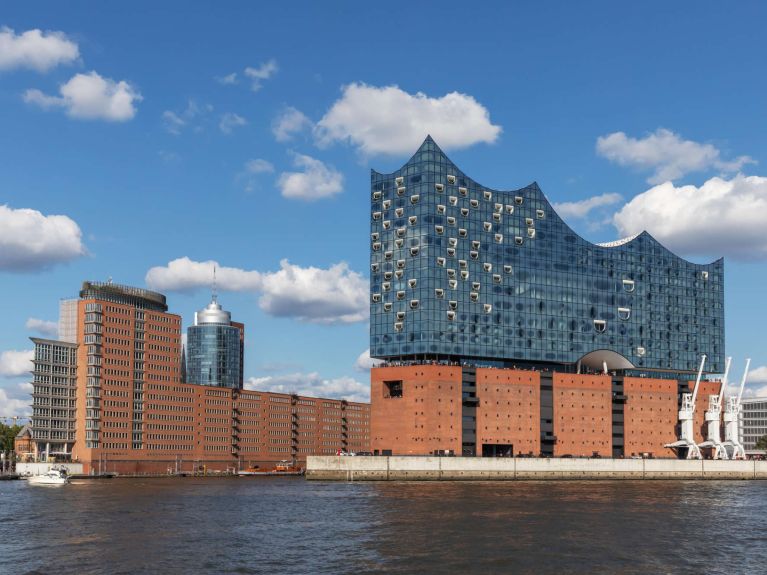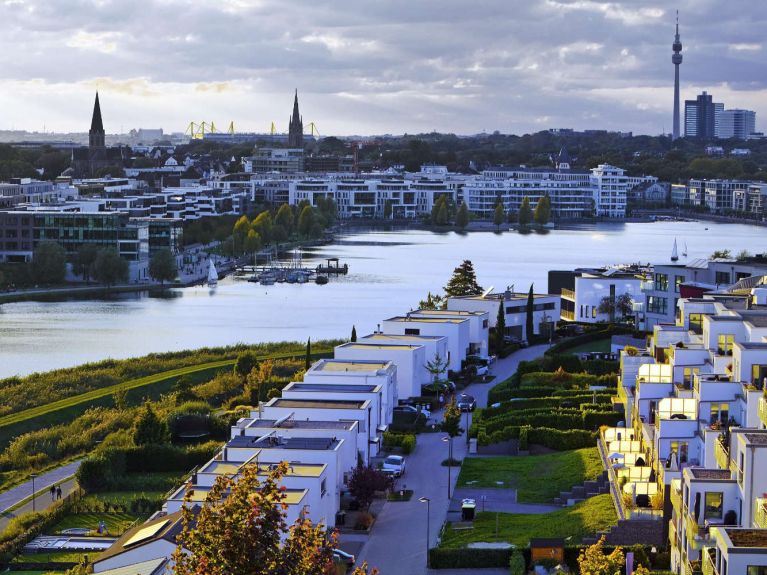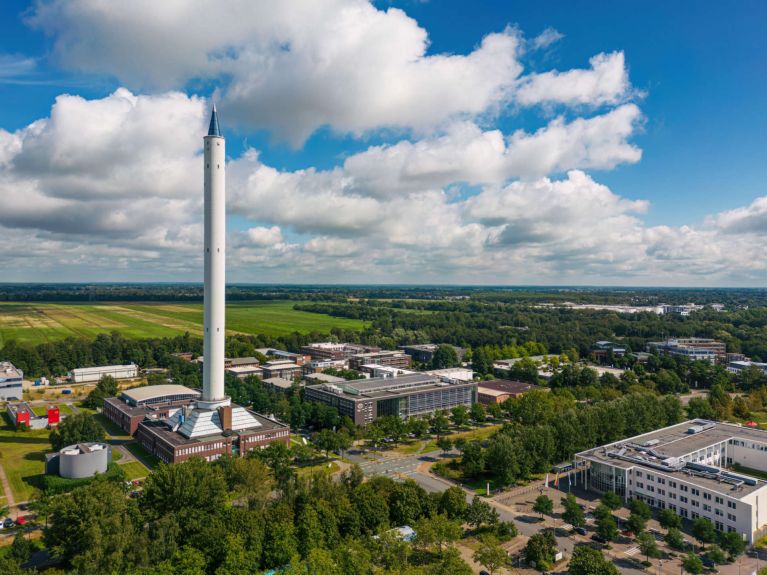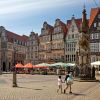Cooperation on structural transformation
Industry is playing a diminishing role in German cities. This is leaving space for new things - and international partnerships are pushing this transformation.

Hamburg and Busan: Redevelopment of former port areas
The two port cities are working together to bring about sustainable development: Busan in South Korea and the northern German city of Hamburg signed a memorandum of understanding in May 2023 that will see them collaborate, especially on smart green cities, climate protection and digitisation of their ports. They will each be able to profit from the other’s experiences of transformation. Busan is transforming itself from a conventional transport and logistics hub into an environmentally friendly smart city. Former port areas are being redeveloped to accommodate shops, office buildings, leisure facilities and hotels. Hamburg’s HafenCity is Europe’s largest inner-city development project. What sets it apart among other things are its innovative heat supply system, sustainable mobility concepts and flood protection facilities.
Dortmund and Pittsburgh: From coal to climate protection

The US city of Pittsburgh and Dortmund in Germany’s Ruhr region have both been shaped by their long history of steelmaking and coal production. Structural shifts have meant that these industries have been scaled back in both cities - creating space for new ideas. Cooperation between the two has been stepped up by the fact that the EUCommission selected Dortmund and Pittsburgh for its IURC (International Urban and Regional Cooperation) programme. Particular emphasis is placed on networking in areas such as the municipal use of hydrogen. Within the framework of an innovation and climate partnership, the two cities intend to engage in even more intensive exchange about climate technologies, economic matters, higher education cooperation and the promotion of start-ups.
Bremen and Izmir: Focus on innovations

Bremen in northern Germany and Izmir in western Turkey are linked not only by a longstanding city twinning agreement, but also by the important role they both play as key ports and locations for industry and logistics. Together, they want to drive a transition to more sustainability, focusing among other things on the further development of transport and logistics structures and the expansion of renewable energies such as wind power and hydrogen. Increased cooperation between the two cities’ technology parks is currently on the agenda: higher education and business institutions are clustered here, pursuing research and development and working on ideas for the future.


